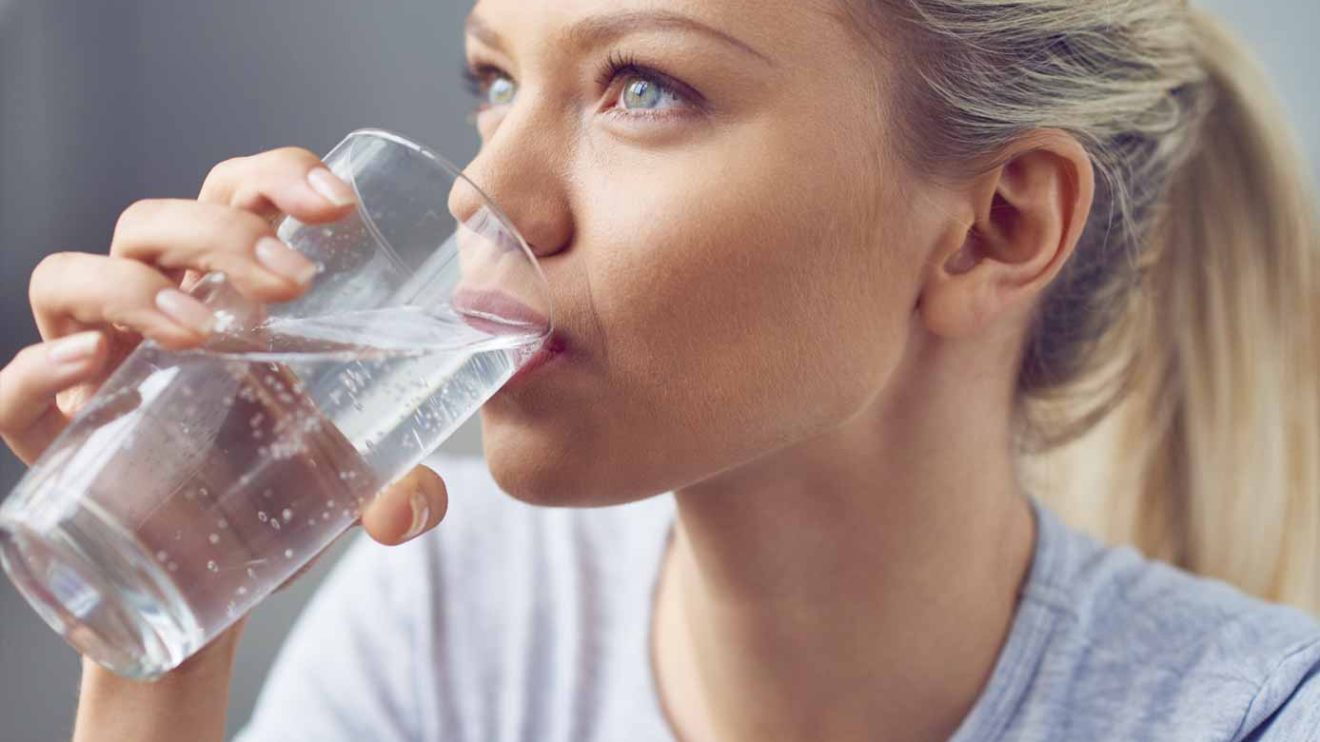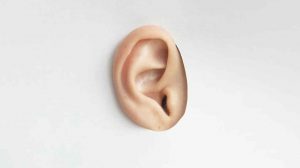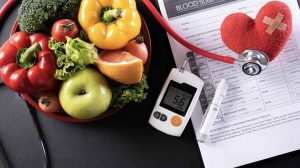During the day we lose fluids. That’s why it’s important to drink – even if you’re not that thirsty. So how many glasses of water should you drink? And what if you prefer juice or fruit? When should you drink more, and why should you not drink too much water in any case? A guide to the glass half full
The body loses fluids in urine, breath, sweat and feces.
Food provides about 20% of fluid intake.
In certain situations, such as pregnancy or after strenuous physical activity, you need to drink more water or other liquids.
Drinking too little water can cause dehydration.
Excessive drinking of water can cause water poisoning.
60% of our body is water. They are essential for the proper functioning of the body – from maintaining a constant and normal body temperature to preventing kidney stones and constipation .
Each and every one of us is a whole world, and so is our body’s requirement for fluids. There are 2 main approaches that help estimate the amount of liquid we need, and in the end both give similar recommendations:
“Exchanges” . This approach is based on the amount of fluids that must be returned to the body instead of those lost during the day.
Our body loses one and a half liters of fluids in urine and another one liter in the process of breathing, sweat and feces . The food provides about 20% of the fluid intake, so it is necessary to drink about 2 liters more to replenish the lost fluids.
- The American dietary recommendations (DRIs) . These recommendations are based on the average consumption of the healthy population aged 19 to 30 years. according to which women should consume 2.7 liters of water per day and men should consume 3.7 liters of water per day.
how so many Wait, let us explain.
The food we eat (vegetables, fruits and yogurt , for example) and the drinks we drink (such as tea, coffee , juice and water) – all contribute to fluid consumption. Food provides about 20% of water consumption.
Eating fruit contributes to fluid intake
So, how much water should you drink a day?
At the end of the calculation (according to the DRIs ), we were left with about 9 cups (about 2.2 liters) of fluids for women and about 13 cups (about 3 liters) of fluids for men.
So what’s new here? The scientists refer to all the fluids we should get from food – and do not limit us to just drinking water. And by the way, according to the same recommendations, people who eat a lot of fruits, vegetables, yogurt, etc. can drink even less.
Which foods have a lot of water?
Fruits and vegetables – for example watermelon , melon, strawberries, lettuce, cabbage and celery – are foods that contain plenty of water (if you suffer from diabetes , then you should consume only a little of the fruits).
When should water be added to the daily menu?
In the following cases it is important to drink more water:
- If you suffer from kidney stones .
- In situations of illness or high fever where the body loses fluids through increased sweating and breathing.
- After vomiting or when suffering from diarrhea .
- If you suffer from recurrent infections in the urinary tract .
- When doing vigorous physical activity .
- When staying in extreme weather conditions of heat or cold. In winter, for example, in a heated room, the body loses a considerable amount of fluids through breathing, even if you don’t feel it.
- Pregnant .
- When breastfeeding .
How much water should you drink during pregnancy and breastfeeding?
Pregnant women should add 2 glasses of fluids a day to the recommended daily amount (that is, about 11 glasses a day in total).
Lactating women should add 4 glasses of fluids a day to the recommended daily amount (that is, about 13 glasses a day in total).
How much water should you drink when doing sports?
There are 2 recommendations regarding the amount of fluids to drink during or after physical activity, although in the bottom line both are equally good:
- One glass of water for every kilometer of running .
- 2 to 4 glasses of water for every hour of physical activity (depending on effort and temperature).
When doing strenuous physical activity, you need to drink more water. Better than a reusable bottle, of course
What happens if you drink too little water?
Drinking too little water or other liquids can cause dehydration .
How do you know if I drank enough water?
One of the ways to make sure you drank enough water is to pay attention to your urine. Light colored and odorless urine is a sign that you have drunk enough. But dark colored urine with a pungent smell is a sign that you need to drink more water.
What happens if you drink too much water? What is water poisoning?
It is true that in Israel’s weather conditions it is necessary to drink a lot to make up for the amounts lost in sweat, but many people drink more than that.
For most of us, excess drinking is not harmful. But in some cases excessive drinking is definitely dangerous, for example in patients with kidney failure or heart failure . Besides, excessive drinking can also harm healthy people as a result of damage to the salt balance due to the loss of salts in the urine. Don’t get confused – some of the symptoms of excessive drinking resemble symptoms of dehydration: confusion and convulsions.
Excessive drinking of water can cause water poisoning. In this situation, the excess water dilutes the sodium ions in the body fluids (in the blood, for example), which may cause a sodium deficiency ( hyponatremia) .
Mild hyponatremia can cause nausea and vomiting. It may also worsen and cause headaches , sleepiness and even convulsions and swelling in the brain cells. Water poisoning is a medical emergency. If it is not treated immediately, it can cause severe damage to the body’s functions and sometimes even death.
One of the most extreme examples is of people under the influence of ecstasy. This drug affects, among other things, the thirst center in the brain – which can cause extreme thirst even when the body is full of water. Uncontrolled drinking in such a situation can cause water poisoning.
Although there is no upper limit for water consumption, drinking a lot of liquid at once (a volume greater than 700 milliliters to 1 liter per hour) can damage the kidneys and even damage the heart and other body systems.
Of course, these recommendations are general and vary from person to person. People with a small body mass can suffer from water intoxication even if they drink less, and people who are very heavy need a larger amount of water, so their upper limit can be higher.
What is better to drink – water or juice? and when?
In the daily fluid count, it is allowed to include juices, soft drinks (keep in mind that if you drink sugary drinks, you put a considerable amount of unnecessary sugars into your body), milk of various types and tea, but the best and calorie-free choice is, of course, to drink water.
An easy, good and recommended way to distribute the fluids during the day is to drink one glass of water at each meal – and another glass of water between every 2 meals (this is when you eat 3 main meals and 2 snacks a day).
And there’s no need to worry too much – when the health condition is normal, another glass of water can’t hurt.
To make sure you drink enough, it is recommended to take a water bottle (preferably a reusable bottle and not a simple plastic one – it is both healthier and environmentally friendly).
But the water doesn’t taste good to me. What to do?
If you don’t like the taste of the water, you can try the following ideas:
- Try adding slices of fresh fruit to the water such as apple slices, strawberry slices or your husband’s peach… the sky is the limit. Adding some lemon juice or an orange slice may also help.
- Herbal infusions (cold or hot, depending on the season) can replace drinking water between meals. The timing is significant because if you drink a strong herbal infusion with food, it may interfere with the absorption of minerals such as calcium , iron and zinc.
- Also clean soda (carbonated water) – without the addition of flavors or sweeteners – is a good alternative.
- As for sugary drinks, try not to drink a lot of diet drinks. Limit yourself to 2 to 3 glasses of a diet drink (including hot drinks sweetened with artificial sweeteners ).












Add Comment